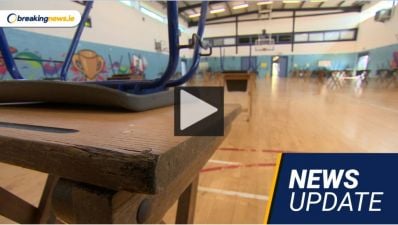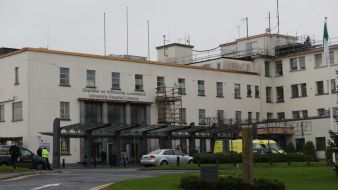New research has described how victims of sexual abuse can find making a statement to Gardaí re-traumatising.
As reported in the Irish Examiner, One in Four, which supports adult survivors of childhood sexual abuse, spoke to 15 child sexual abuse survivors in-depth about their experience with the criminal justice system.
According to the study, the Director of Public Prosecutions decided not to proceed five cases to trial. The study detailed how this made participants feel as if their experience did not matter.
Of the cases that proceeded to trial, a guilty plea was entered in six cases and four jury trials resulted in a conviction.
The study said this "illustrates how difficult it is to be a complainant witness in a trial of sexual offences".
It also found that a common complaint was feeling on the periphery of the trial, “a cog in the wheel”.
Participants described how giving evidence was extremely stressful, as was the close proximity of the accused person to the survivor in court.
Intimidated in the courtroom
Speaking to RTÉ on Tuesday, Naomi Gould, advocacy case manager for One in Four, said of the 10 cases that went to court, participants "presented a picture of feeling quite intimidated in the courtroom, particularly with the layout".
"One person, in particular, spoke about the gender imbalance in the courtroom, that, you know, there was lots of powerful men. This participant was a young female.
"Another participant spoke about a courtroom outside of Dublin, so in a more rural location, and it feels very closed."
Ms Gould described the study as "a unique perspective" with victims and survivors having a platform to speak about their experience of the system.
She said one of the key findings was the length of time the process can take.
She said the prosecution process speaks from when the participant made an initial complaint to gardaí up until a decision came back from the DPP.
"The participants reported that being approximately 2.2 years based on their recollection, that was in 10 participants," Ms Gould said.
"But I think what's more important than perhaps the time was how impactful that waiting period was for people.
"Participants really spoke that that was a very difficult period of time. They were kind of waiting to see what was going to happen, waiting to see if their case is going to be taken to court. And they kind of spoke about being powerless."

She added that participants "felt quite triggered and re-traumatised by this lack of information and communication during this process".
According to the study, 46 per cent of the participants had been abused in their own family and 33 per cent of the participants had been abused by more than one perpetrator.
If you have been affected by any of the issues raised in this article, you can call the national 24-hour Rape Crisis Helpline at 1800 77 8888, access text service and webchat options at drcc.ie/services/helpline/, or visit Rape Crisis Help.
In the case of an emergency, always dial 999/112.







